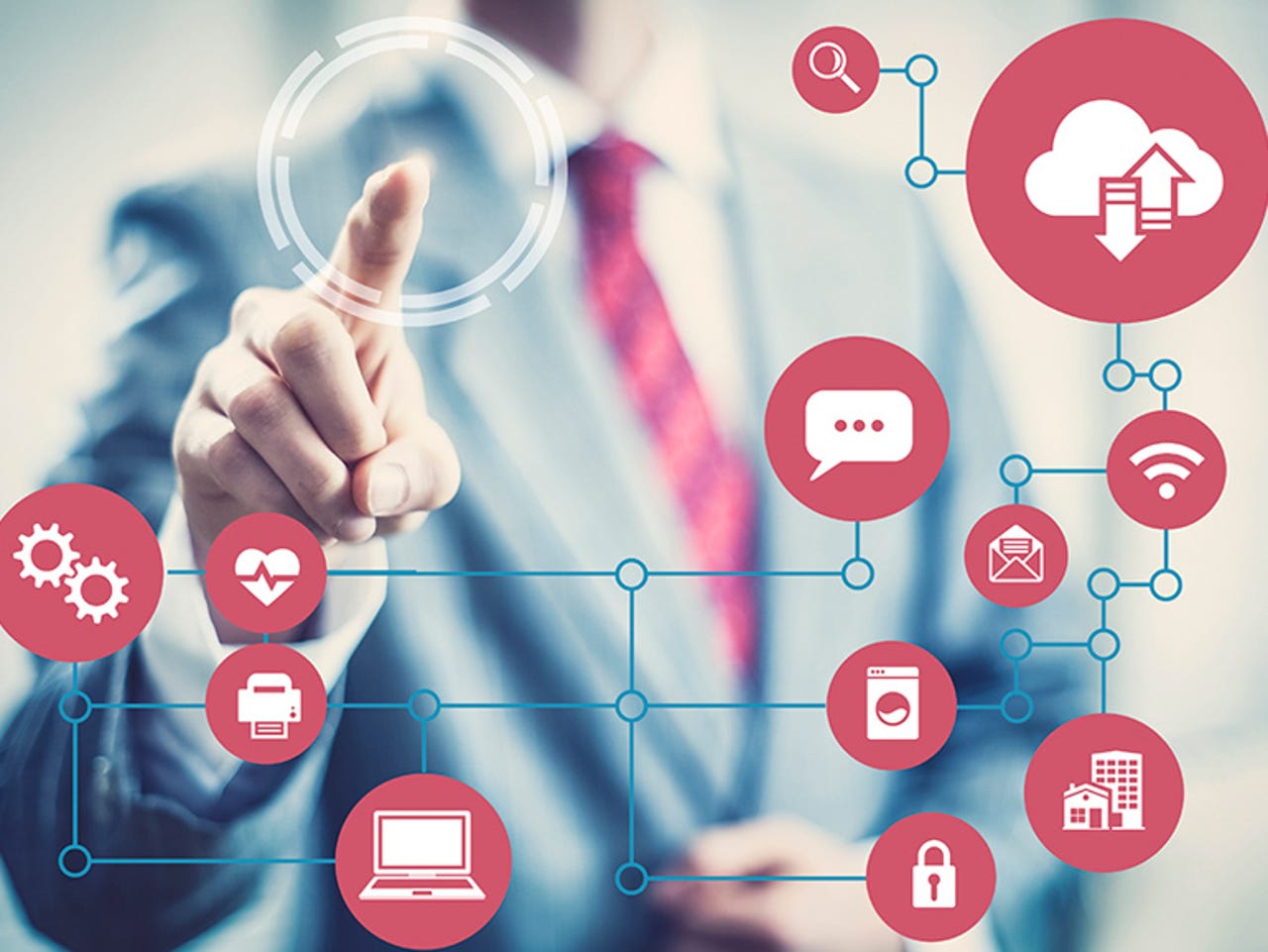It's an IoT world: The big shift to intelligent devices


Image: iStock
'Internet of things' (IoT), or 'machine to machine' connectivity (m2m) as the cellular providers define it, is now reaching a widespread level of maturity. Internet of Things World conference has its biggest event of the year in Silicon Valley May 10-12 (the other edition is in Dublin Ireland in November).
In many ways IoT is the vibrant new frontier of online innovation in the valley, with data flows from objects and devices starting to reach huge levels and projections of massive increases.
As I write this I see that Cypress purchased Broadcom's Internet of Things business for $550 million. IoT chips will represent 28% of the semiconductor market by 2021, with various parts of the market growing 36-60% per year according to ABI Research while Research and Markets expects 38% growth in connected devices in healthcare alone, reaching $163 billion by 2020. Specialized UK analyst and advisory firm Machina Research thinks the IoT market will reach $4 trillion by 2025.
Inevitably the big players in enterprise computing and mobile connectivity are watching like hawks to see where and how the space plays out and how they can dominate. Cisco is heavily committed already with their own conference in Berlin while Microsoft has done a stellar job building out their Azure platform in anticipation of the coming tsunami of device data. Intel is changing direction rapidly, dropping mobile chips in favor of cloud and IoT development.
For now the IoT 'commons' is the place to be and where ideas and innovation are cross pollinating rather than at single vendor dominated events, and 'Internet of Things World' promises to be an exciting coming of age. The conference is now at 10,000 registered attendees (a 50% increase over last year) and taking on the increasingly large areas these technologies touch, from the overblown media topic of self driving cars down to RFID chipped groceries.
17 ways the Internet of Things can go horribly wrong
Last year I wrote about HotSchedules, the full stack back office, shift, HR and task management SaaS restaurant offering, and discussed with CEO Anthony Lye how they were baking in IoT functionality to track all perishables entering a restaurant. We are now at a point where a restaurant can track the portions cut from a fish, every item on a plate and profitability on top of all the obvious inventory control, and the race is on to find dominant standards and players in similar spaces. Hot Schedules is standardizing and eliminating lots of smaller software players in the restaurant management space (much as ERP rolled up fragmented software in the late 80's) while in the IoT space the market is just reaching fever pitch to find winners and losers, making conferences such as Internet of Things World a fascinating place to be.
The other huge area of interest is connectivity. The mobile companies have a massive opportunity but are arguably still locked into previous generation 'data plan' thinking. We all like to think of torrents of data flowing effortlessly from connected devices but transportation is complex and expensive. Clearly wi-fi isn't a major problem but mobile coverage and connectivity is, especially given already overburdened cellular networks in major metropolitan areas.
As is so often the case with these grandiose technology predictions, there will be sharp elbows, embarrassing falls, land grabs, innovation roll ups and attempts to corner the market. I'm looking forward to next week's conference, arguably the hot spot and place to be in Silicon Valley.
More next week from the event.